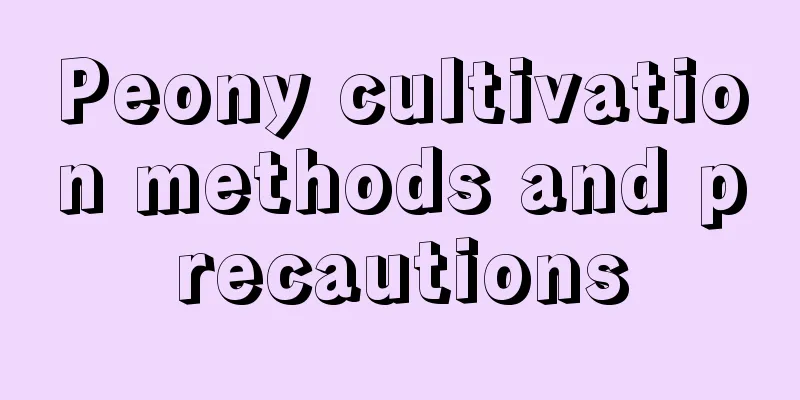What are the breeding methods and precautions for red diamonds?

|
Red diamond is easy to grow. It belongs to the Araceae family and has strong adaptability to the environment. It is very good to grow a pot of red diamond at home. The leaves grow large and shiny, and it has a certain effect of purifying the air, so it is very suitable for indoor cultivation. How to cultivate red diamonds1. Soil The soil for growing red diamonds must have good drainage. You can mix 5 parts of peat soil and 5 parts of perlite evenly as nutrient soil. Soil with good drainage can reduce the occurrence of root rot of the plant. 2. Temperature Red diamond likes a warm environment and is not resistant to high temperatures. The suitable growth temperature is between 10-30 degrees. It is best to keep the room temperature at around 20 degrees. The temperature in winter must not be below 0 degrees Celsius, and it is best to be above 5 degrees. 3. Lighting Because red diamond prefers light, it needs artificial lighting in the winter when there is insufficient light. In the summer, it cannot be exposed to direct sunlight, which will burn the leaves. At this time, it is best to cover part of the leaves to protect it. Light should also be provided in other seasons. 4. Water and fertilizer management Red Diamond likes a humid environment. It can be watered once a day in summer, once every three days in spring and autumn, and watering should be reduced in winter. In spring and autumn, light fertilizer is generally applied once every 15 days. In winter and summer, the growth of the plant slows down and no fertilizer is needed at this time. Red diamond maintenance precautions1. Pruning: If the location where the red diamond is placed is not ventilated enough, or the branches and leaves are too dense, the plant cannot receive fresh air and will easily breed bacteria. Therefore, it should be placed in a place with good air circulation, and appropriate pruning should be given when the branches and leaves are dense. 2. Disease prevention and control: Red Diamond may be infested with insect pests or its leaves may turn yellow. At this time, we must pay attention that the former may be caused by environmental and maintenance problems and requires the use of chemicals to treat it, while the latter may be due to environmental unsuitability and the breeding conditions must be changed in time. |
<<: Can plum trees be propagated by cuttings?
>>: Cultivation methods and precautions of variegated rubber trees
Recommend
Propagation of Pothos sinensis by leaf cuttings
1. Time Selection Generally, stem cuttings are us...
How to prevent black rot in succulent plants
1. Open windows for ventilation When growing succ...
What soil is suitable for roses?
1. Acidic soil Roses are suitable for acidic soil...
How does coleus survive the winter?
Temperature requirements of coleus Compared with ...
How many years does Dongkui bayberry bear fruit?
Introduction to Planting Dongkui Bayberry Dongkui...
How to fertilize oleander
1. How to choose fertilizer for oleander If you w...
How can soil-grown lucky bamboo grow thicker? How can water-grown lucky bamboo grow thicker?
1. How to grow lucky bamboo in soil 1. Choose sui...
What is the best fertilizer for roses?
Rose flower fertilization time During the growing...
When should carrots be planted?
Carrots are a widely grown vegetable across the c...
How to grow jackfruit
1. Maintenance methods 1. Temperature: It likes a...
Method of growing osmanthus flowers in water
1. Maintain water quality Whether the water quali...
Fertilization period characteristics and fertilizer types for apple trees (Brief description of the fertilizer requirements for apple growth)
Apple trees of different ages require different f...
How to grow winter peas
Peas are mostly planted in autumn, but a few are ...
Cucumber planting technology and management fertilizer
The root system of cucumber is shallow and the ro...
Turning the loess in the northwest into nutrient-rich black soil is the right thing to do!
Step 1: Material preparation (Author: Yi Xiaowu S...









